Mark Anthony Neal's Blog, page 715
July 20, 2015
"Check yourself before you wreck yourself": Some Unsolicited Advice to Bernie Sanders
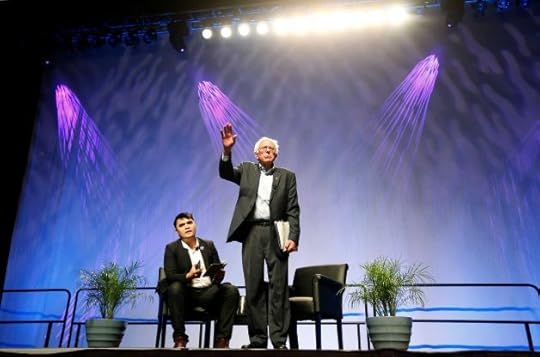 "Check yourself before you wreck yourself": Some Unsolicited Advice to Bernie Sandersby Mark Nasion | @McFireDogg | special NewBlackMan (in Exile)
"Check yourself before you wreck yourself": Some Unsolicited Advice to Bernie Sandersby Mark Nasion | @McFireDogg | special NewBlackMan (in Exile)When you have been a justice fighter all your life, it is sometimes very hard to be confronted and challenged by people much younger than you are as if your experience and history means little.
This has happened to me on numerous occasions when commenting on race issues. And the temptation is to respond in anger. But I have learned, through experience, that sometimes these critics are right, that I have said or written something which is insensitive or arrogant or takes the discussion to a place which smothers voices which need to be heard.
And so I force myself to listen to the attacks, try not to take them personally, and change my approach to the issues when such a change is called for. Do I always do this smoothly and tactfully? Hell no! Sometimes I have administered a smack down to the people calling me out, only to then do, over time, exactly what they suggest.
But insofar as I have remained relevant in discussions of race and social policy, it is because I have tried, if not always gracefully, to listen to and learn from people who have attacked my positions. And to respect their right to attack me.
I suggest that Senator Sanders do the same with #BlackLivesMatter protesters at Netroots Nation who disrupted his talk. There is much to be learned from their actions and words about what is really going on in this country. And how people who have been left out, pushed aside, ignored and marginalized feel about it.
If you don't learn from your critics, it is on you, not on them or as a famous hip hop song once reminded us "Check yourself before you wreck yourself".
+++
Mark Naison is a Professor of African-American Studies and History at Fordham University and Director of Fordham’s Urban Studies Program. He is the author of two books, Communists in Harlem During the Depression and White Boy: A Memoir. Naison is also co-director of the Bronx African American History Project (BAAHP). Research from the BAAHP will be published in a forthcoming collection of oral histories Before the Fires: An Oral History of African American Life From the 1930’s to the 1960’s.
Published on July 20, 2015 06:17
'Black Lives Matter' Activists Disrupt Presidential Forum at Netroots Nation
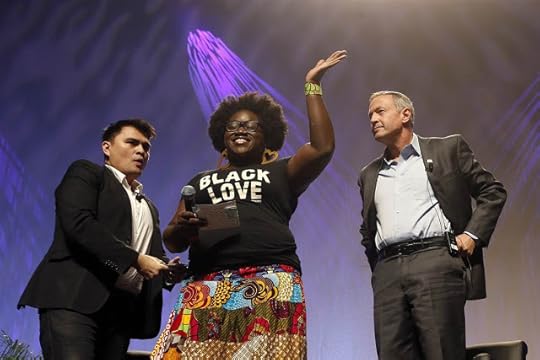 Tia Oso of #BlackLivesMattersThe #BlackLivesMatters Movement disrupted a Presidential Forum at the NetRoots Nation gathering in Arizona.
Tia Oso of #BlackLivesMattersThe #BlackLivesMatters Movement disrupted a Presidential Forum at the NetRoots Nation gathering in Arizona.
Published on July 20, 2015 05:48
July 18, 2015
#RDFS: Racial Discussion Fatigue Syndrome
Published on July 18, 2015 15:48
Big Think: Let’s Decide the Future of the Internet Before It’s Decided for Us
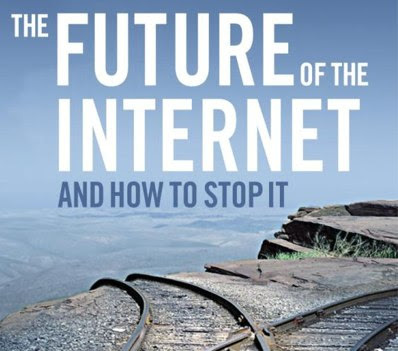 The online experience is changing rapidly, explains Harvard Law professor Jonathan Zittrain, and not necessarily for the better. We should act to make sure certain norms such as web surfing persist as they are. He is the author of
The Future of the Internet--And How to Stop It
.
The online experience is changing rapidly, explains Harvard Law professor Jonathan Zittrain, and not necessarily for the better. We should act to make sure certain norms such as web surfing persist as they are. He is the author of
The Future of the Internet--And How to Stop It
.
Published on July 18, 2015 11:24
"Our Selma!" | Mass Moral March for Voting Rights
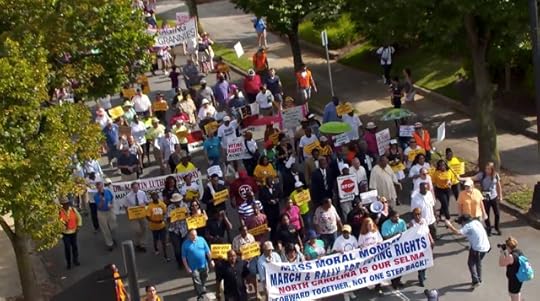 'On the same day the NC NAACP went to trial against North Carolina Governor Pat McCrory for the suppression of Voting Rights in the state, thousands turn out for the Forward Together Movement’s Mass Moral March for Voting Rights in Winston-Salem.'
'On the same day the NC NAACP went to trial against North Carolina Governor Pat McCrory for the suppression of Voting Rights in the state, thousands turn out for the Forward Together Movement’s Mass Moral March for Voting Rights in Winston-Salem.'
Published on July 18, 2015 11:09
July 17, 2015
Out of Body: Composing Blackness through Sound, Music & (Performance) Art
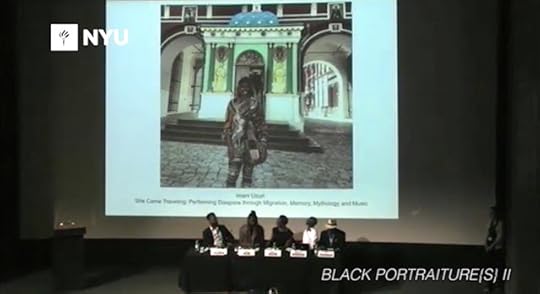 Panelists Matthew D. Morrison + Nikki A. Greene +
Kwami Coleman
+
Imani Uzuri
discuss the iterations of Blackness found in Sound, Muisc and Performance at the Black Portraiture{s} II: Imaging the Black Body and Re-Staging Histories held in Florence, Italy. Out of Body: Composing Blackness through Sound, Music, and (Performance) Art from NYU Photography and Imaging on Vimeo.
Panelists Matthew D. Morrison + Nikki A. Greene +
Kwami Coleman
+
Imani Uzuri
discuss the iterations of Blackness found in Sound, Muisc and Performance at the Black Portraiture{s} II: Imaging the Black Body and Re-Staging Histories held in Florence, Italy. Out of Body: Composing Blackness through Sound, Music, and (Performance) Art from NYU Photography and Imaging on Vimeo.
Published on July 17, 2015 15:54
Fashion, Appropriation & 'The Angry Black Girl'
 Social media erupted when Kylie Jenner posted a selfie with cornrows. But, when Hunger Games star Amandla Stenberg called out Jenner for co-opting blackness, she was labeled an "angry black girl." In a discussion of the politics of hair and appropriation
Huffpost Live
host @MarcLamontHill is joined by @JamilahLemieux + @MichaelaAngelaD + @lilly_works + @NewBlackMan.
Social media erupted when Kylie Jenner posted a selfie with cornrows. But, when Hunger Games star Amandla Stenberg called out Jenner for co-opting blackness, she was labeled an "angry black girl." In a discussion of the politics of hair and appropriation
Huffpost Live
host @MarcLamontHill is joined by @JamilahLemieux + @MichaelaAngelaD + @lilly_works + @NewBlackMan.
Published on July 17, 2015 14:49
Garner's Ghost, or "I (Still!) Can't Breathe" by Nyle Fort
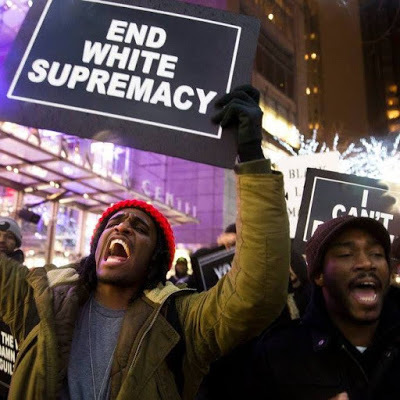 Garner's Ghost, or "I (Still!) Can't Breathe"by Nyle Fort | @Nyle Fort | NewBlackMan (in Exile)
Garner's Ghost, or "I (Still!) Can't Breathe"by Nyle Fort | @Nyle Fort | NewBlackMan (in Exile)I couldn’t sit still. Every time the sun rose, it felt like another black life fell victim to a trigger-happy cop, or some white man tryna’ act like one. But this time I had had enough. Honestly I said that same thing after they murdered Mike Brown, and Trayvon Martin, and Aiyana Stanley-Jones, and Rekia Boyd, and Freddie Gray. Calling out their names as if I’m taking school attendance makes me sick to my stomach. I guess part of what it means to be black, for me at least, is to never have had enough of having enough. They kill us: “I’ve had enough.” They kill us again, and again: “I’ve had more than enough!” Yet having had enough is never “enough” to satisfy the gluttonous appetite of a white racial supremacy hungry for white power.
It’s the same old story. White cop gets scarred. Black body gets killed. Or, in other words: White lives matter, Black lives don’t. I’ve heard this story from the day my chocolate-hued black body was born into this exceptional white supremacy. It’s a 500-year-old tale of racial terror and generational trauma. The characters change; the plot thickens; but it’s the same old story – from the transatlantic slave trade to the prison industrial complex, from Emmett Till to Eric Garner.
I was hustling to finish PhD applications when I saw his lifeless body plastered across the TV screen. Some white news reporter mentioned loosies. I couldn’t stop thinking about his mama, and my mama, his children, and my unborn. Do I really want to bring black lives into a world where they will struggle to breathe? How will I tell them, my babies, that death is their birthright? But these are the questions of a philosopher, and anti-blackness leaves little time for Socratic methods.
“I can’t breathe.”
He cried out, as a gang of NYPD officers bullied his burly (black) body to the ground. The chokehold ban, which had been in place since 1993, clearly didn’t apply to scary-looking black men. And even if it did, it wouldn’t have mattered. Eric (who shares my middle name – a name I received in memory of my brother who was killed in a bar fight) was already fucked. This innocent country put him in a chokehold far before he was accused of selling loosies, far before his body had grown into adulthood, and far before Eric would learn to navigate the concrete jungle that is Black American life. Indeed, before he was formed in his mother’s womb, Eric’s worth had been determined, his fate set by an utterly anti-black “democracy” built on stolen land, indigenous genocide and African slave labor.
“Eric Garner. Mike Brown. Shut it down! Shut it down!” we yelled at the top of our weary lungs. My winter coat was drenched. Our collective tears mixed with the heavy rain had me feeling like God was about to bring the next great flood. But this was no Sunday school lesson. This was real. Garner was gone. Ferguson had popped. Cleveland was on edge. And in a few months, Baltimore would burn.
Meanwhile I had applications to submit. At this point I could care less about grad school. How could I? Niggas were dying. Everyday. And I needed to be where the action was -- in the streets.
"I can't breathe."
"I can't breathe."
His ghost whispered in my ear as I sat at my computer, struggling to edit my personal statement. Fuck this man, I thought to myself as I abandoned my applications and walked towards Newark Penn Station, frustrated. I need to be around black people. If being born black meant living to die, then I figured we should at least die together.
"Loosies, loosies, loosies," homie with the dingy red fitted cap said real low key as I stood on the corner, waiting to cross the street. I always said I wouldn't do two things when I grow up: drink coffee or smoke cigarettes. I still haven't tried coffee.
I took a drag of the Newport 100; the same cigarette I watched my brother Chad smoke in visiting rooms across New Jersey; the same cigarette I tried for the first time in Ferguson cuz’ I was stressed out, and I was told it calms your nerves. But the buzz it provided could never numb me from the sober reality of lynched black bodies. I really hope 'oh boy' selling these don’t end up like Garner. I knew he would, yet wouldn't. Certainly he'd die. And, like Garner, his death will likely have something to do with being black in a fundamentally anti-black society - even if indirectly. But, unlike Garner and Mike Brown and Freddie Gray and so many others, his death will be much less spectacular, much less sensational. The kind of death that never makes mainstream news or inspires national protests. The kind that happens so often, so subtly that one must see structure to understand its meaning.
Before I could finish my thought, my hands were shaking from the rush of untaxed nicotine and the fact of being a new nigger in Obama’s America. My virgin lungs couldn’t take any more smoke. I placed my headphones over my ears, turned up J. Cole, and coughed my way to New York City.
“I can’t breathe.”
“I can’t breathe.”
“I can’t breathe.”
What will it take for black folk to break free from the yoke of white supremacy? God, I wish I knew. More than a black president. I know that much. More than clever #hashtags. More than marches. More than speeches, and revolutionary rhetoric devoid of revolutionary struggle. More than me getting a PhD. And more than fed up millennials with good intentions, like me, chanting:
“I can’t breathe.”
“I can’t breathe.”
“I can’t breathe.”
“I can’t breathe.”
More than what most of us are willing to sacrifice. More than what our colonized minds currently allow us to collectively imagine. More than me writing this in order to stay alive. If I’ve learned anything in my few years as a wannabe freedom fighter, it is this: there ain’t no pill, no easy way, no magic in the quest to be free. All that’s promised is sweat and struggle. And if you’re lucky, a beloved community that will love you through the ugly and beauty of it all.
“I can’t breathe.”
These were Eric’s last words in life. But they won’t be his last in death. Garner’s ghost will forever haunt America, and any idea that we live in a post-racial society. His blood continues to cry out from that sacred Staten Island street corner to every corner of this nation, whispering:
“I (still) can’t breathe..”
+++
Nyle Fort is a Master's of Divinity candidate at Princeton Theological Seminary, a youth pastor, freelance writer, and grassroots community organizer based in Newark, New Jersey.
Published on July 17, 2015 13:12
A Year Without Eric Garner
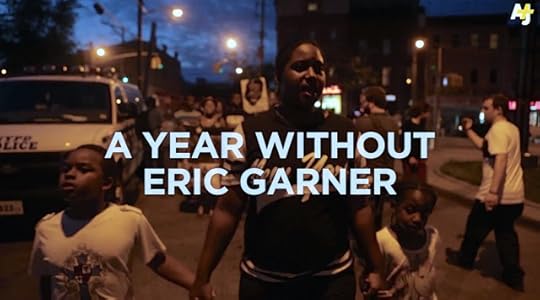 'Eric Garner's death in 2014 at the hands of the NYPD helped spark a nationwide movement for police reform. One year later, his family has settled a wrongful death lawsuit with New York City, but they aren't satisfied that justice has been served.' --
via +AJ+
'Eric Garner's death in 2014 at the hands of the NYPD helped spark a nationwide movement for police reform. One year later, his family has settled a wrongful death lawsuit with New York City, but they aren't satisfied that justice has been served.' --
via +AJ+
Published on July 17, 2015 09:13
Billy Preston--"All Things Must Pass" (1970)
Published on July 17, 2015 06:08
Mark Anthony Neal's Blog
- Mark Anthony Neal's profile
- 30 followers
Mark Anthony Neal isn't a Goodreads Author
(yet),
but they
do have a blog,
so here are some recent posts imported from
their feed.





